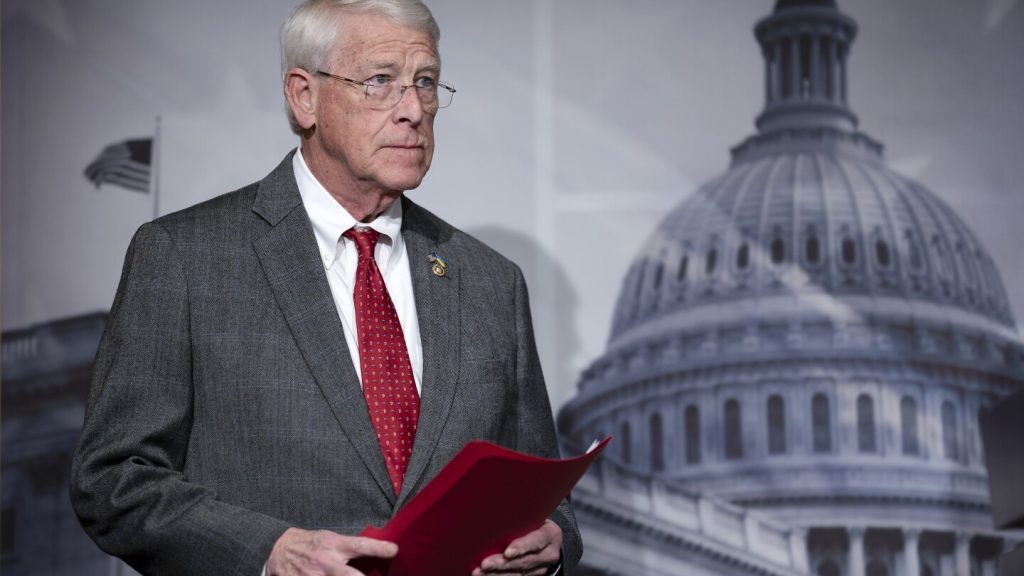Republican Senator Roger Wicker is calling for a significant increase in defense spending, citing the need to deter threats from U.S. adversaries like Russia, Iran, and China. He is seeking an additional $55 billion in defense spending over the limits set in the deal to suspend the nation’s debt limit. Wicker argues that there is unprecedented cooperation among these adversarial nations to challenge U.S. dominance and believes a generational investment in defense is essential. The White House has proposed a more modest increase in defense spending, adhering to the debt limit deal by proposing a 1% increase from the previous year.
Wicker’s proposal faces challenges in Congress, as lawmakers are divided on the issue of defense spending. With the country still grappling with political divisions and external threats, Wicker believes that now is not the time to adhere to spending caps when it comes to national defense. He argues that the U.S. has no choice but to invest in defense to ensure its survival. Despite opposition and skepticism from some lawmakers, Wicker is steadfast in his belief that significant spending increases are crucial to address the evolving threats facing the nation.
The plan put forth by Wicker goes beyond advocating for increased defense spending and calls for a strategic shift in the U.S. defense posture. He proposes that the military eventually consume 5% of America’s gross domestic product, a significant increase from the current level of about 3%. Wicker points to the new Cold War environment with Russia and China as a reason for this shift in priorities, emphasizing the need for a robust defense strategy to counter emerging threats. His proposal includes investments in new weapons systems and strategies to address modern challenges in national security.
China and Russia’s growing partnership and assertiveness on the world stage have further underscored the need for enhanced defense capabilities, according to Wicker. He warns that the U.S. faces the most dangerous threat environment since World War II and urges a national war footing to prepare for a potential conflict with major world powers. Wicker’s proposal includes addressing deferred maintenance on military facilities and preparing for potential threats like nuclear weaponry in space. He sees the recent meeting between Putin and Xi as a wake-up call for U.S. policymakers to prioritize national defense.
Despite the push for increased defense spending, lawmakers remain divided on the issue, with Democrats likely to resist further cuts to other government programs. The House Armed Services Committee approved a proposal for an $884 billion defense authorization bill, staying within spending caps but reallocating funding to specific military programs. Senate Democrats, led by Sen. Jack Reed, have not yet released their proposed spending amounts, adding uncertainty to the budget discussions. Wicker is hopeful that his efforts to rally support for increased defense spending will be successful, drawing inspiration from previous attempts by former Senator John McCain.
Given the changing dynamics of global politics and the increasing assertiveness of U.S. adversaries, Wicker believes the time is ripe for a significant investment in national defense. He aims to build broad support among lawmakers, both within his party and across the aisle, to prioritize defense spending and address the evolving security landscape. Despite the challenges and skepticism from some lawmakers, Wicker remains confident in the necessity of his proposal and its potential to meet the growing threats facing the United States. As Congress prepares to debate the annual military authorization bill, the future of defense spending remains a critical issue for national security and strategic interests.


